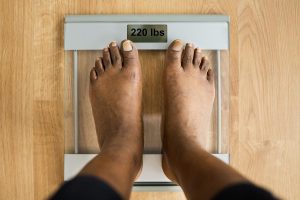People who buy into conspiracy theories about COVID-19 may be especially likely to refuse a vaccine when one becomes available, a new study suggests.
Researchers said the results are not surprising. But they highlight how mistrust in authorities could already be undermining efforts to get the pandemic under control: Those same conspiracy believers were also less likely to regularly wear a face mask in public.
The study, which surveyed 840 U.S. adults in March and July, found that many believed at least one pandemic conspiracy theory: By July, 37% believed the Chinese government had created the new coronavirus as a biological weapon.
Meanwhile, others suspected the pharmaceutical industry engineered the virus, and one-third believed U.S. health authorities were exaggerating the seriousness of COVID to damage Donald Trump’s presidency.
Most notably, said researcher Dan Romer, those beliefs predicted actions.
People who believed conspiracy theories in March were less likely to be wearing face masks in July, versus non-believers. And their intentions to refuse any future COVID vaccine intensified.
It also seems distrust is extending beyond the usual “hardcore” conspiracy theory crowd, according to Romer, who is research director of the University of Pennsylvania’s Annenberg Public Policy Center in Philadelphia.
“There’s this group in the middle that’s drawn to one or two of these theories, but aren’t the hardcore believers,” Romer said.
On one hand, that could be seen as good news. It’s hard to convince people who are dedicated conspiracy theorists, Romer said, but scientific evidence “might sway the person in the middle.”
But to sway Americans, health authorities need their trust. And that could be a tall order, Romer said — considering the confusing “mixed messages” that have come from government and the abundant misinformation spread via social media and certain media outlets.
“Unfortunately, we have fertile ground for misinformation,” agreed Tara Kirk Sell, a senior scholar at the Johns Hopkins Center for Health Security in Baltimore.
That perfect storm includes a novel virus that scientists and doctors have been trying to understand in real-time; shifting and sometimes conflicting public health recommendations; politics getting tangled up with science; an economic calamity, and a breakdown of social connections.
“There’s a lot of pain out there,” said Sell, who was not involved in the study. All of those factors, she said, can make some people latch onto “theories” that seem to explain what is happening — or align with what they want to believe.
And that could have real consequences for controlling the pandemic.
“This study shows that false information is not just words,” Sell said. “It translates into action.”
The findings, published Sept. 21 in Social Science & Medicine, are based on a nationally representative sample of U.S. adults who were surveyed twice. At both points, they were asked to rate their agreement with three common conspiracy theories.
People who strongly agreed with any of the three in March were less likely to say they’d get vaccinated against COVID. And that sentiment was stronger still in July, when only 22% of these conspiracy believers said they intended to be vaccinated.
That compared with 76% among people who did not agree with any conspiracy theories back in March.
Conspiracy believers were also less likely to say they wore a mask every day they were out in public: 62% did, versus a full 95% of non-believers.
As for what separated conspiracy believers from others, media mattered. People who relied heavily on either social media or “conservative” media for information were more likely to believe in conspiracy theories, versus those who favored mainstream media.
Conspiracy beliefs were also stronger among Black and Hispanic Americans than among whites — which might, Sell noted, reflect longstanding distrust in government and the health care system.
It’s also a concerning finding, Romer said, because Black and Hispanic Americans have been especially hard-hit by COVID.
Public health authorities, Sell said, will likely need the assistance of trusted community groups to disseminate information about any new vaccine.
A broader issue, though, is that it’s not only conspiracy theorists who have concerns about a future COVID vaccine. Polls have found that many Americans are wary that politics could result in a rushed approval process.
“You could have the best medical intervention possible,” Sell said. “But if you don’t have the public’s trust, it doesn’t matter.”
More information
For more on COVID-19 vaccines under development, visit the World Health Organization.
Source: HealthDay
Copyright © 2026 HealthDay. All rights reserved.












-300x200.jpeg)




